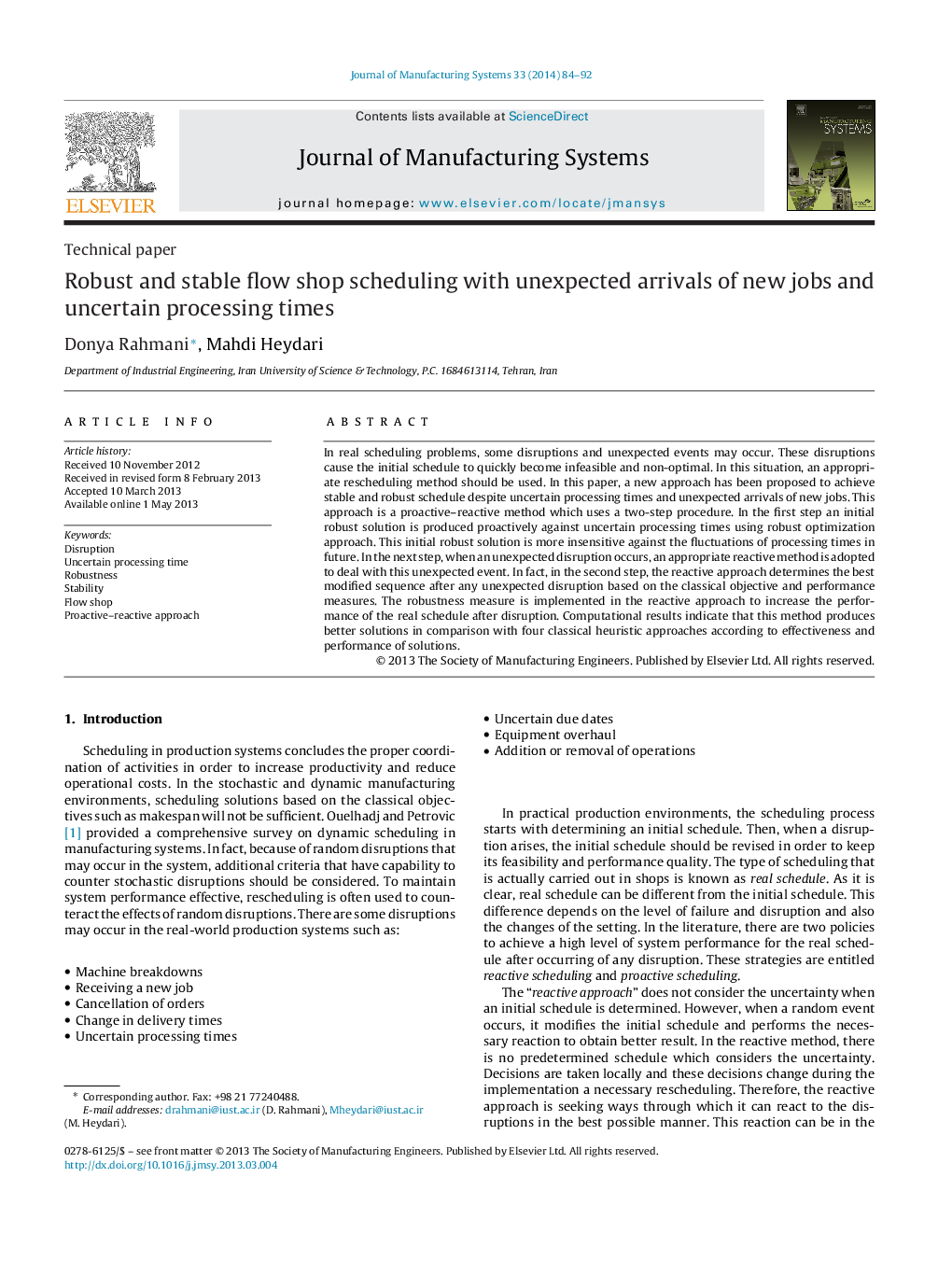| Article ID | Journal | Published Year | Pages | File Type |
|---|---|---|---|---|
| 1697628 | Journal of Manufacturing Systems | 2014 | 9 Pages |
•A two-machine flow shop system with unexpected disruptions such as the arrivals of new unpredicted jobs and uncertain processing times is considered.•An appropriate proactive–reactive method to create appropriate reaction to deal with these unexpected disruptions is proposed so that the best sequence could be determined in dynamic system based on the classical objectives and performance measures.•The proposed approach is a two-step method that produced robust and stable schedules.•The robustness and stability in the rescheduling problem are considered to reduce the effect of disruptions as performance measures.
In real scheduling problems, some disruptions and unexpected events may occur. These disruptions cause the initial schedule to quickly become infeasible and non-optimal. In this situation, an appropriate rescheduling method should be used. In this paper, a new approach has been proposed to achieve stable and robust schedule despite uncertain processing times and unexpected arrivals of new jobs. This approach is a proactive–reactive method which uses a two-step procedure. In the first step an initial robust solution is produced proactively against uncertain processing times using robust optimization approach. This initial robust solution is more insensitive against the fluctuations of processing times in future. In the next step, when an unexpected disruption occurs, an appropriate reactive method is adopted to deal with this unexpected event. In fact, in the second step, the reactive approach determines the best modified sequence after any unexpected disruption based on the classical objective and performance measures. The robustness measure is implemented in the reactive approach to increase the performance of the real schedule after disruption. Computational results indicate that this method produces better solutions in comparison with four classical heuristic approaches according to effectiveness and performance of solutions.
